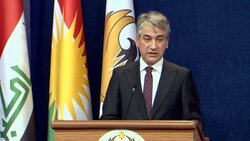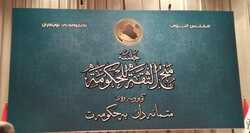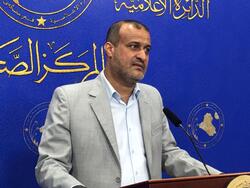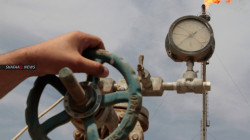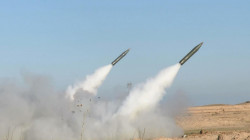Struggles of Iraqi artists: exploitation, financial hardships, and a plea for regulation
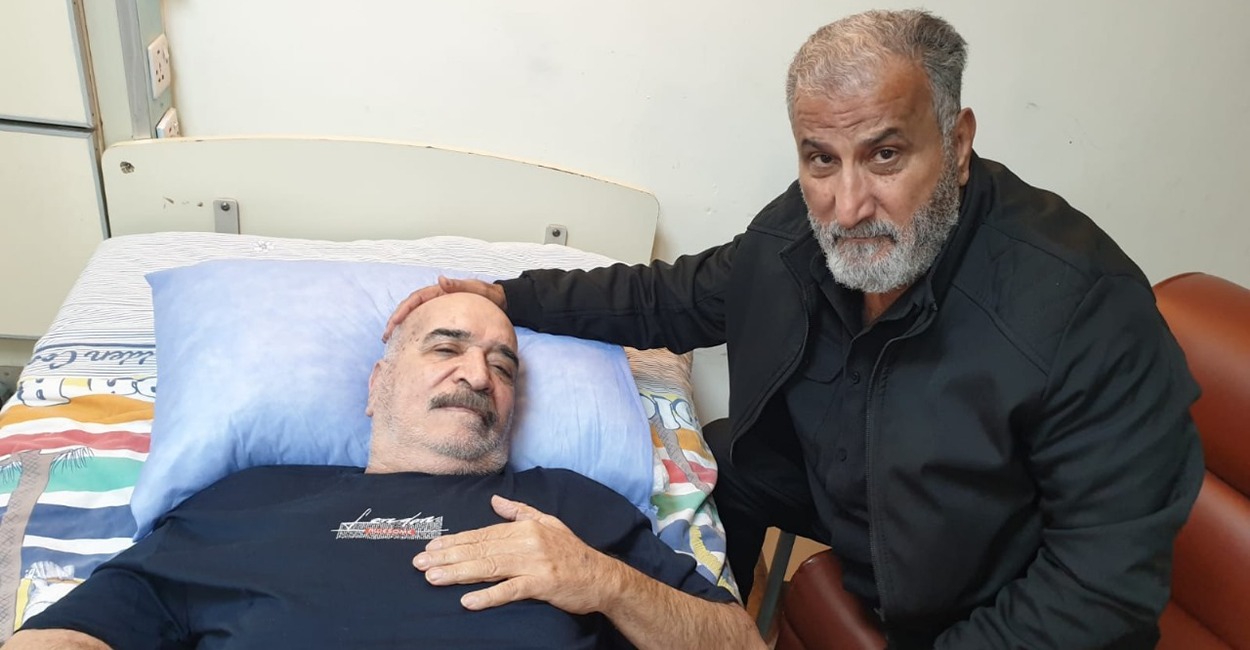
Shafaq News/ Behind the curtains of captivating performances and the glitz of fame, a poignant struggle resonates through the hearts of the individuals who bring magic to the stage. Iraqi artists, often the unsung heroes of the nation's cultural narrative, suffer profound financial hardships and a shifting landscape that threatens to overshadow their craft.
Shafaq News Agency unveils a tapestry woven with dedication, exploitation, and the unwavering spirit that fuels their passion.
Iraqi artists revealed that in addition to difficult financial conditions, they face "exploitation and theft of efforts" operations in the artistic community. They call for the need to define the responsibilities of the Artists Syndicate to regulate the pace of the profession, shedding light on the phenomenon of social media "celebrities" in current dramatic works and the impact on the industry.
Amid low wages and challenging living conditions, Iraq has lost several of its stars, some of whom may have been suffering financially before their passing. The latest loss was the comedian Maki Awad, who died in Baghdad on February 27, 2024, after a long battle with illness and an unsuccessful treatment journey that lasted for years in the United States. His legacy includes over 170 theatrical, cinematic, and dramatic works that remain embedded in the memories of Iraqis, including the play "Bayt wa Khams Bayban" and the series "Aalam al-Sitt wahiba."
Artists attribute the significant financial decline affecting actors to various factors, including some leaving life quietly due to reduced production budgets, television channels' policies in selecting topics, and the interference of political parties in determining the nature of artistic works and participating artists based on specific desires.
Recently, activists circulated a photo on social media showing the Iraqi comedian Jasim Sharaf, 68, lying on his sickbed, accompanied by the Iraqi artist Sami Mahmoud. Mahmoud mentioned that Sharaf, his "lifelong friend," has suffered four brain strokes and a heart attack, rendering him unable to move the right side of his body.
"Stealing" and Meager Wages: The Chaos of Fame
In this regard, Iraqi artist Iyad Radi tells Shafaq News Agency that "Iraqi production is artistically scarce, and the Iraqi artist's financial and living situation is below average because it relies on dramatic works, and the wages for one job are not sufficient for an entire year because they are meager wages. Only the sought-after stars receive reasonable compensation, but the rest struggle to make ends meet," explaining that "blame falls on Iraqi channels and some production companies primarily because these companies steal the efforts of artists, profit greedily, and take more than half of the artistic work budget. This is a confiscation of efforts."
He adds that "some TV channels boast about discovering new and young faces, but in reality, they have other motives for this discovery. The new faces don't demand much money but seek fame. These channels also seek to find artists absent from the scene for years, not out of commemoration but to exploit their need and the realization that they can work at low prices."
Artist Iyad Radi continues, "Many channels and producers have introduced social media celebrities because they have followers. It's acceptable for producers to think this way, but there should be regulations and standards for how to work correctly. Every profession has its laws, and they cannot be breached so easily. This raises questions about the Iraqi Artists Syndicate. For example, when the Egyptian Artists Syndicate included a social media celebrity in artistic work, it caused a stir. Why do we have an academy and an institute of fine arts to graduate artists? The artistic profession has become mixed up, and everything is chaotic. Everyone wants to become famous and act, and the pollution of fame has affected everyone."
Regarding the comparison between the wages of Iraqi and Arab artists, Iyad Radi mentions, "I have about 80% knowledge of the fees of Arab artists in Egypt and Syria and similar rates in Iraq. There is theft of the efforts of Iraqi artists," urging young artists to "establish their own line of thought and not become cheap commodities in the face of low payments. They should give themselves value, or they will disappear after a while as the lights that attract them now will soon fade."
Artist Awatef Naeem agreed with this opinion, stating that "the fees provided by channels to Iraqi artists do not match the level of performance, psychological and physical effort, and commitment. In some cases, artists are even responsible for bringing costumes and accessories." She emphasized that "the implementing producer, whether an individual or a company, is the cause of the artist's suffering, as they provide opportunities for distributing roles and sometimes choose one director over another, or bring in an Arab director instead of an Iraqi one."
Additionally, artist Khalil Fadel clarified to Shafaq News Agency, "Current wages do not befit the Iraqi artist compared to Arab artists. There is no production being marketed to Arab satellite channels, which is why Iraqi compensation is in this state."
"The Pitiful" Image and the Artists Syndicate
On a somewhat contrasting note regarding the challenging financial situation of artists, Iraqi artist Sinan Al-Azzawi has a different opinion. He tells Shafaq News Agency, "The Iraqi artist is still respected, as reflected in their external dealings, whether in hospitals or other places they frequent." He cites the incident of the death of his father, the artist Sobhi Al-Azzawi, stating that there was no negligence from any party during his illness, either from the Artists Syndicate or other responsible entities for his health. He criticizes the "pitiful image" promoted by some artists through complaints and crying in the media, considering it a flaw on their part.
Al-Azzawi explains that "some artists are responsible for their difficult living conditions because they did not manage their affairs properly, while others do not know how to manage their matters correctly."
He clarified another reason that may be related to the financial situation of Iraqi artists, stating, "There are actors who are obsessed with appearing on the screen every year during Ramadan, even if it is for low wages." He justifies this by saying they "may live on the wages of artistic work, while I have a salary because the Ministry of Culture employs me."
Regarding the comparison between the wages of Iraqi and Arab artists, Al-Azzawi points out, "The wages of Iraqi artists do not compare to those of Syrian, Egyptian, or Lebanese stars because the issue is related to both the Artists Syndicate and marketing entities." He emphasizes, "The syndicate should have determined artists' wages based on first and second categories, and thus, a 10% tax should be imposed on each artist based on this level. Secondly, there is no commercial negotiation process between local channels and their Arab counterparts to sell Iraqi artistic works." He explains that "Iraqi channels refrain from cooperating due to their political affiliations."
Artist Sinan Al-Azzawi believes that "we do not have drama; instead, political entities have opened channels to broadcast their political ideologies. This is why the decrease in artists' wages and the syndicate's responsibility for classifying Iraqi artists according to levels and wages."
Several artists have previously expressed their financial struggles in media statements. A notable example is the renowned Iraqi artist Sami Qaftan, who revealed in one of his TV interviews the reasons for participating in a "non-convincing" program, attributing it to the difficult living conditions he is experiencing. The young Iraqi artist Sarah Aws also disclosed in one of her interviews that she pays her rent from her dramatic works, reflecting the financial difficulties faced by individuals in the artistic community.
Iraqi Artist Wages vs Arab "Komparss"
An anonymous artistic source disclosed to Shafaq News Agency that "wages in Iraq are determined based on the television episode rather than the scene, starting from $70 and reaching up to $150. As for first-tier stars, their wages are similar to those of Arab extras, starting from $300 and reaching $500."
The source indicates that "most producers now rely on social media numbers, so they started attracting social media celebrities at the expense of the actor's quality. They believe these celebrities have a following that can contribute to the work's success. At the same time, these celebrities agree to lower wages simply for the desire to appear and increase their fame, affecting the result for competent actors."
The Artists Syndicate's Opinion
Artists Syndicate has not responded to Shafaq News Agency's inquiries on this matter. Despite continuous communication with them in recent days, the agency cited the busy schedule of head Jabbar Joudi, as conveyed to Shafaq News Agency. The agency leaves room for the Artists Syndicate to express its opinion on the statements or provide comments on the report later.
Government Figures to Support Iraqi Arts
In the context of discussing the artistic reality and government measures in this regard, Prime Minister Mohammed Shia Al-Sudani announced on December 4, 2023, what he called a "large cultural and artistic project" in Iraq to support cinema, drama, theater, visual arts, literature, writers, and children's literature. He confirmed allocating a budget of 13.5 billion Iraqi dinars to implement the project, distributed between 5 billion dinars to support Iraqi drama and an equal amount for Iraqi cinema. Additionally, 1 billion dinars were allocated to print literary and intellectual products for Iraqi writers.
According to the same project, 200 million dinars were allocated to support visual artists organizing private exhibitions and 300 million dinars to support various musical arts. Furthermore, 1.5 billion dinars were allocated to the Union of Writers and Authors in Iraq to organize official conferences and festivals. An additional 500 million dinars were earmarked to support children's literature.
Al-Sudani affirmed that the government had previously allocated 5 billion dinars to the Artists Syndicate for the artists' retirement fund and 3 billion dinars to the social solidarity fund for the Writers' Union.
